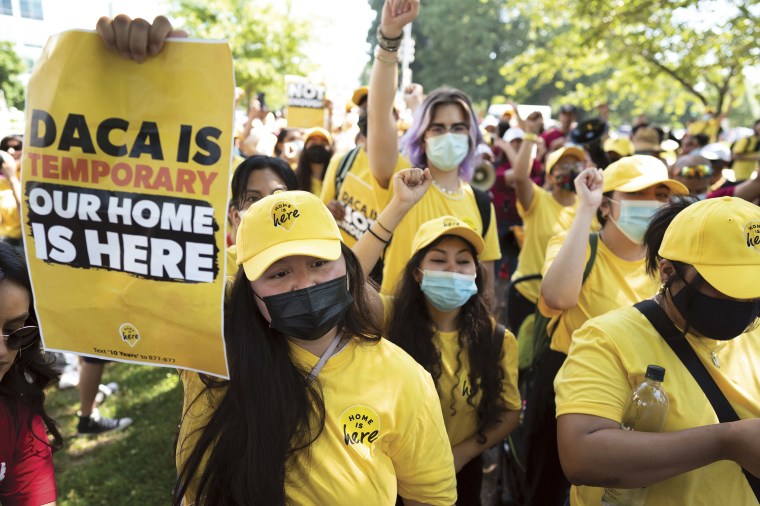A federal judge in Texas on Friday extended an order temporarily allowing hundreds of thousands of young immigrants enrolled in a program to work and study in the U.S. without fear of being deported.
U.S. District Judge Andrew Hanen of Houston had ruled last year that the decade-old Deferred Action for Childhood Arrivals program was unlawful, but allowed it to stay intact as advocates appealed his ruling. In a decision last week, the 5th U.S. Circuit Court of Appeals sent the case back to Hanen, saying he should consider whether a new rule issued by the Biden administration impacts his findings.
The administration's revised version of DACA, aimed at codifying and strengthening the protections, is set to go into effect on Oct. 31.
In his ruling Friday, Hanen said he would maintain what's been the status quo since his ruling last year: allowing the Department of Homeland Security to grant application renewals for those already in the program but blocking DHS from "granting DACA status for any new applicants."
At a hearing Friday, Hanen ordered attorneys in the case to provide more information and said he expects additional legal arguments related to the new rule. While he did not not lay out a timetable for the case moving forward, the current protections are expected to remain in place for at least several more months as each side presses their case.
President Barack Obama established DACA by executive order in 2012. The program established a way for young migrants brought into the U.S. as children — often referred to as Dreamers based on never-passed legislation in Congress called the DREAM Act — to study and work without fear of being deported.
Texas, which is home to over 100,000 people enlisted in the DACA program, filed suit to end the program in 2018, alleging that the program is illegal because it should have been created by legislation, not executive order.
Hanen agreed that the program was unlawful his July 2021 ruling. He found that the DHS didn’t have the authority to implement DACA and that DACA had not been subjected to public notice and comment periods required under the federal Administrative Procedures Act — one of the issues the Biden administration tried to address in the new rule for the program last month.
Barring legislative action, DACA's fate is expected to ultimately be decided by the U.S. Supreme Court. The program narrowly survived a different challenge before the high court in a 5-4 ruling in 2020, but the court now has a larger conservative majority.

